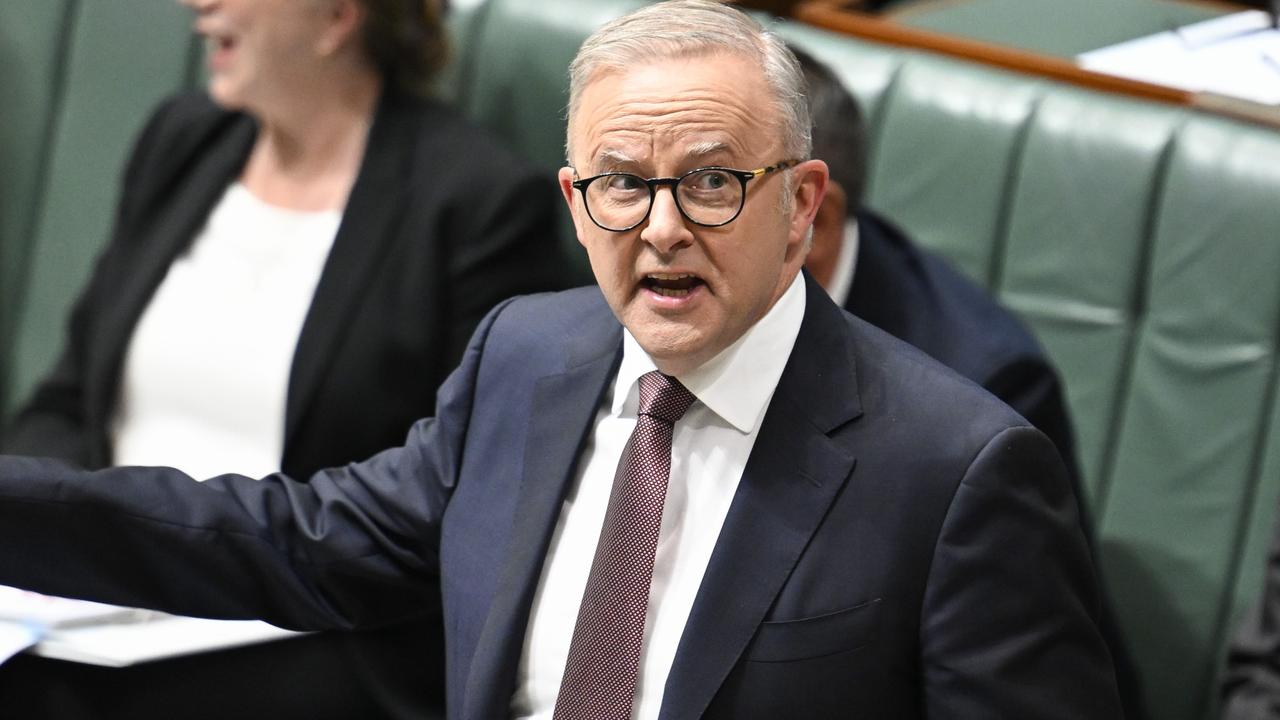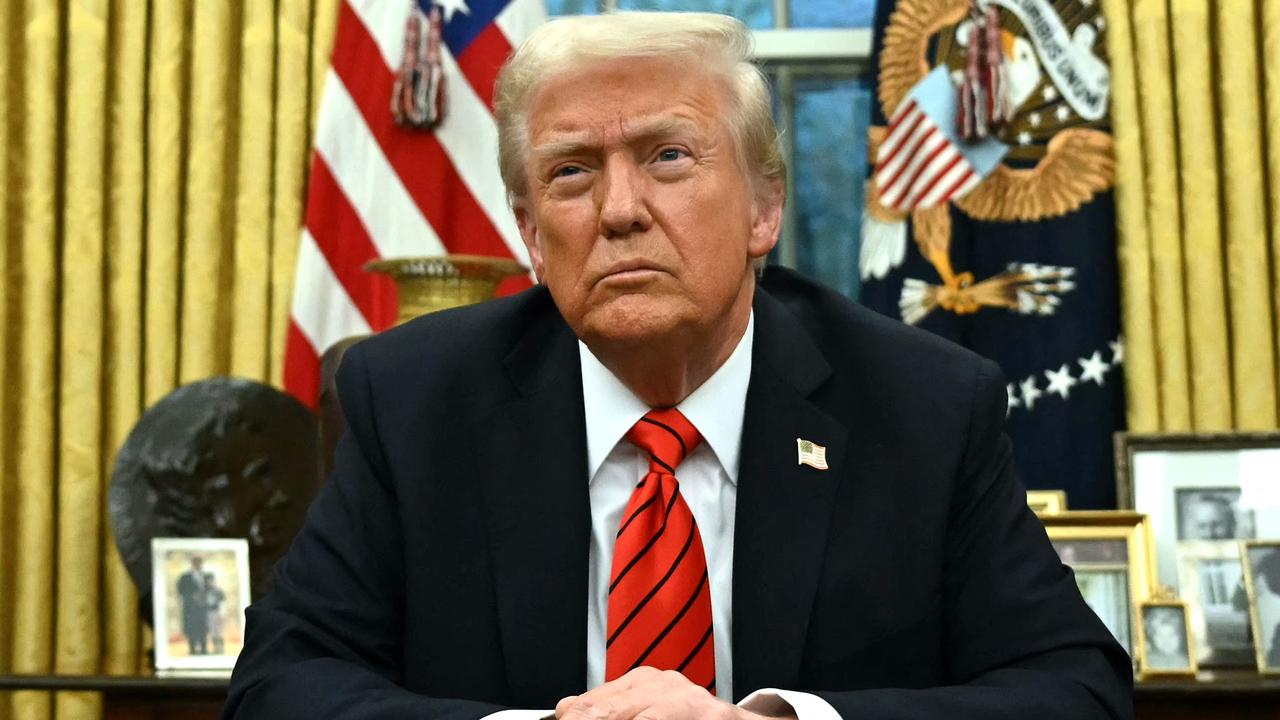James Campbell: Is the electoral reform bill likely to enable parties to shaft their opponents?
The best way to think about the forthcoming “reforms” to the nation’s electoral laws is to compare the plight of the major parties to the free-to-air TV networks, James Campbell writes.

James Campbell
Don't miss out on the headlines from James Campbell. Followed categories will be added to My News.
The best way to think about the forthcoming “reforms” to the nation’s electoral laws is to compare the plight of the major parties to the free-to-air TV networks.
It seems like only yesterday the networks were giants who strode the nation like colossuses, their stars known to everyone in the land.
Similarly, at every election the Liberal, National and Labor parties got almost every vote.
In the past few years all that has changed and thanks to competition, network television, like the ALP and Coalition, is much diminished.
In one case they’ve shed audience to the streaming services, and in the other votes and members to the minor parties and independents.
In that sense Larry Emdur and Anthony Albanese are the perfect embodiment of the age – nice enough guys who in the golden days would not have come near The Lodge or the Gold Logie.

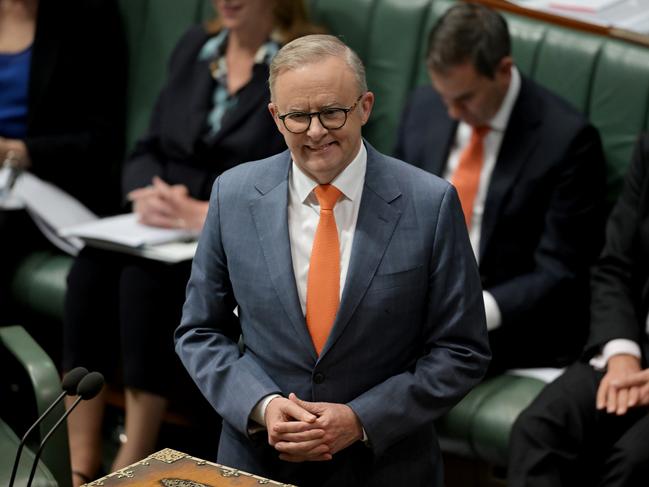
Australia’s TV networks could of course have responded to the sudden arrival of competition by making better television programs, just as the political parties could be reacting to the arrival of the Teals and Greens by seeking to grow their membership.
But that is not the Australian way.
In Australia, the traditional response of a failing industry is to apply to the government for help in the form of a handout or a tax concession or failing that, the imposition of some regulation to frustrate new players.
In the last category, there is no finer example than something called the Communications Legislation Amendment (Prominence and Anti-siphoning) bill, which was passed this year in response to the pleas of the TV networks.
This act, which might just be The Most Australian Piece of Legislation Ever – passed with the bipartisan support of the Coalition – creates a category in law called a “regulated television device” which is now the only type which can be sold in this Commonwealth of Australia.
And what, you might ask, is a lawful regulated television device?
The answer is one that meets the “minimum prominence requirements” for the free-to-air networks and their video on demand apps.
In other words, it’s now illegal to sell a TV in Australia unless you can see the buttons for three commercial networks plus the ABC and SBS on the home screen, whether the customer wants them or not.

In newspaper terms it would be like Albo passed a law to make it illegal for 7-Eleven to display the Herald Sun anywhere but at the checkout counter.
Not only that, the Act also compels sellers of TVs to “take reasonable steps to ensure that the device continues to comply with the minimum prominence requirements for a regulated television service” which if read correctly means by law the networks’ apps must be set to be updated.
In light of the shameless way they are prepared to help their mates in TV, is it wrong to suspect the animating principle of Don Farrell’s electoral “reform” bill – agreed with the Coalition – is likely to be ways of shafting their opponents?
For years of course taxpayers have been shelling out millions on propping up pollies, either through tax deductions, or direct subsidies such the $75m they pocketed after the 2022 federal election.
But as results show, despite this, the majors keep losing market share.
Given that direct subsidies have failed, the next move will inevitably be regulation in the form of donation and spending caps.
Though according to a recent piece by Michelle Grattan there will also be a “relatively modest” increase in public funding.
For the ALP, this is mainly about making sure Clive Palmer can never again spend $60m as he did in 2019 when his anti-Labor message helped sink Bill Shorten.
For the Coalition, the main game is trying to make sure henceforth the Teals are treated as a political party and subject to the same compliance rules.
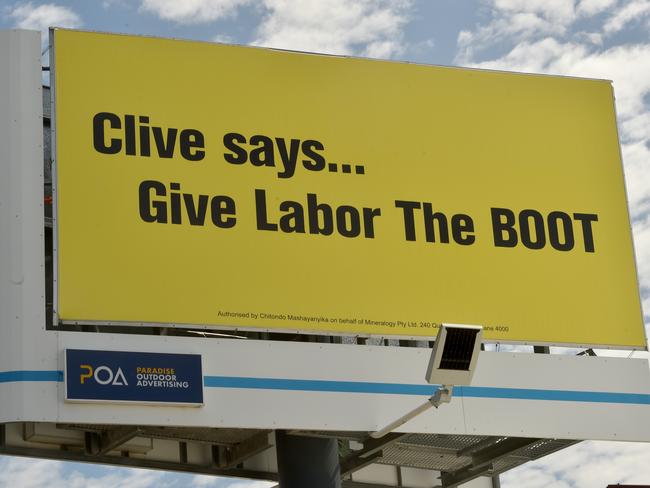
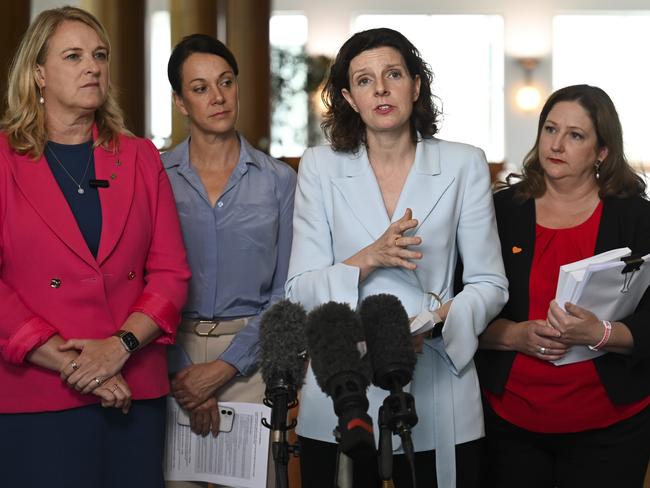
The other thing they are most concerned about is how third parties such as unions or campaigning entities like GetUp! and Advance are treated.
If Labor does end up acquiescing to the Liberal desire to knee cap the Teals it will be because they fear the conservatives might astroturf a string of Dai Le style independents in their backyard.
And according to Grattan this is exactly what the majors intend to do, by agreeing to impose a $1m per seat spending cap.
(That might sound a lot but it’s about half what Monique Ryan and Allegra Spender spent in Kooyong and Wentworth.)
Not that the Teals and Liberals’ interests are completely at odds however, for whatever they say in public, neither stands to benefit from the plan to drop the present disclosure threshold from an indexed cap of $16,900 to “a hard, non-indexed threshold of $1000”.
Sometimes, like last week’s NDIS deal, bipartisan agreement is a sign that when the chips are down our leaders can still do the right thing by Australia.
Other times I fear it means we are about to get fleeced.
More Coverage
Originally published as James Campbell: Is the electoral reform bill likely to enable parties to shaft their opponents?



